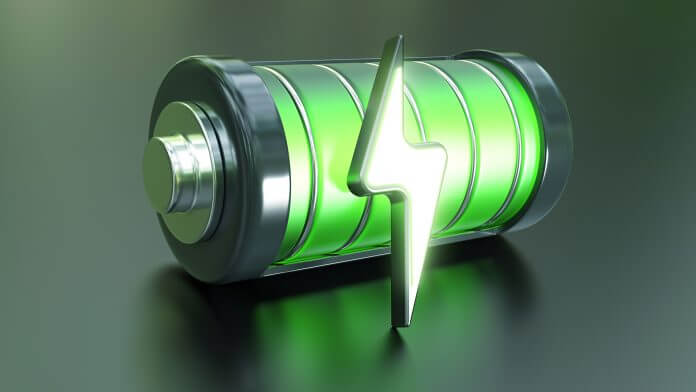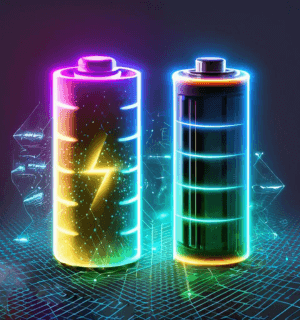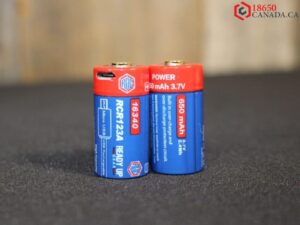Energy storage plays a crucial role in our modern world, enabling efficient and reliable power supply. Among the various energy storage technologies available, lithium-ion batteries have emerged as a revolutionary solution.
In this article, we will explore the immense potential of lithium-ion batteries in revolutionizing energy storage, their advantages, applications, challenges, innovations, and the future prospects of this game-changing technology.
In the article “Revolutionizing Energy Storage: The Future Is Lithium-ion Batteries,” the remarkable potential of lithium-ion batteries in transforming energy storage is explored.
The article highlights the advantages of lithium-ion batteries, such as high energy density, long cycle life, and fast charging capabilities, making them suitable for applications in renewable energy integration, electric vehicles, and portable electronics.
The challenges faced by this technology, including resource limitations, safety concerns, and environmental impact, are addressed. The article also discusses ongoing innovations and future developments, emphasizing the importance of sustainability.
Overall, lithium-ion batteries are recognized as a game-changing solution that revolutionizes energy storage and paves the way for a greener and more efficient future.
The Importance of Energy Storage
Energy storage is essential for balancing the supply and demand of electricity, ensuring a stable and resilient power grid. It enables the integration of renewable energy sources, load shifting, peak shaving, and backup power during emergencies. Lithium-ion batteries have emerged as a leading technology in the energy storage landscape, transforming the way we store and utilize electrical energy.
The Rise of Lithium-Ion Batteries
Lithium-ion batteries have gained significant traction in recent years due to their remarkable performance characteristics. They offer high energy density, allowing for a large amount of energy to be stored in a compact and lightweight package. The development of lithium-ion batteries has been fueled by advancements in materials, manufacturing techniques, and scalable production processes.
Advantages of Lithium-Ion Batteries
Lithium-ion batteries provide numerous advantages over traditional energy storage technologies. They have high energy efficiency, meaning they can store and release energy with minimal losses. These batteries also have a long cycle life, allowing them to be charged and discharged thousands of times without significant capacity degradation. Additionally, lithium-ion batteries offer fast charging capabilities, making them suitable for applications that require quick and reliable energy replenishment.

Applications of Lithium-Ion Batteries
Renewable Energy Integration
Lithium-ion batteries play a pivotal role in integrating renewable energy sources into the power grid. They store excess energy generated from renewable sources during periods of high production and release it when demand exceeds supply. This helps address the intermittent nature of renewables, ensuring a smooth and stable energy supply.
Electric Vehicles
The automotive industry has witnessed a surge in the adoption of electric vehicles (EVs), largely driven by the advancements in lithium-ion battery technology. These batteries provide the high energy density required for EVs, enabling longer driving ranges and shorter charging times. The widespread use of lithium-ion batteries in electric vehicles contributes to reducing greenhouse gas emissions and dependence on fossil fuels.
Portable Electronics
The proliferation of portable electronics, such as smartphones, laptops, tablets, and wearables, has been made possible by lithium-ion batteries. Their compact size, lightweight, and high energy density make them ideal for powering these devices, providing extended usage times and enhancing mobility.
Challenges and Innovations in Lithium-Ion Battery Technology
Despite their advantages, lithium-ion batteries face challenges that need to be addressed for further advancement. These challenges include the reliance on limited resources like cobalt, safety concerns related to thermal runaway and fire incidents, and the need for improved recycling methods. Innovations are being made to develop alternative materials, enhance battery safety through advanced designs and control systems, and improve the recycling and circular economy aspects of lithium-ion batteries.
Environmental Impact and Sustainability Considerations
The environmental impact of lithium-ion batteries is an important aspect to consider. The extraction and processing of raw materials, as well as the disposal of used batteries, can have potential environmental consequences. However, the industry is actively working towards sustainable practices, including responsible sourcing, recycling initiatives, and exploring greener alternatives.
Future Developments and Prospects
The future of lithium-ion batteries is filled with exciting possibilities. Ongoing research and development efforts aim to improve energy density, enhance safety features, increase the lifespan of batteries, and reduce costs. Additionally, emerging technologies such as solid-state batteries and lithium-sulfur batteries hold the potential for further advancements in energy storage.
Molicel/NPE INR 3500mAh 18650 Battery Leading the Way
In the realm of energy storage, lithium-ion batteries are revolutionizing the way we harness and utilize power, and the 3500mAh 18650 battery by Molicel/NPE INR is at the forefront of this revolution.
With its impressive capacity and efficient performance, this battery is transforming the landscape of energy storage systems. Whether it’s for residential solar power setups or grid-scale applications, the 3500mAh 18650 battery provides reliable and sustainable energy storage solutions.
Its high energy density, long cycle life, and rapid charging capabilities make it an ideal choice for capturing and delivering renewable energy. Embrace the future of energy storage with the revolutionary power of Molicel/NPE INR’s 3500mAh 18650 battery and unlock the potential for a cleaner and more sustainable world.
Summation
Lithium-ion batteries have revolutionized the energy storage landscape, enabling the integration of renewable energy, powering electric vehicles, and enhancing the functionality of portable electronics. Their high energy density, efficiency, and scalability make them a preferred choice for various applications. However, addressing challenges related to resources, safety, and sustainability is crucial for their continued growth and environmental stewardship.
FAQs
Are Lithium-Ion Batteries the Same As Lithium Batteries?
No, lithium-ion batteries and lithium batteries are not the same. Lithium-ion batteries are rechargeable and offer higher energy density, while lithium batteries are primary (non-rechargeable) batteries.
How Long Do Lithium-Ion Batteries Last?
The lifespan of lithium-ion batteries varies depending on factors such as usage patterns and operating conditions. Generally, they can close several years with the right care and protection.
Can Lithium-Ion Batteries Be Recycled?
Yes, lithium-ion batteries can be recycled. Recycling processes help recover valuable materials and reduce environmental impact. Many recycling programs and facilities are available to ensure proper disposal and recycling of lithium-ion batteries.
Can Lithium-Ion Batteries Catch Fire Or Explode?
Although the risk is minimal, lithium-ion batteries can experience thermal runaway and potentially catch fire or explode if mishandled, damaged, or exposed to extreme conditions. Strict safety guidelines and proper usage are essential to mitigate these risks.
What Are the Emerging Battery Technologies?
Emerging battery technologies include solid-state batteries, lithium-sulfur batteries, and various post-lithium technologies. These technologies aim to overcome the limitations of current lithium-ion batteries, offering improved energy density, safety, and sustainability.

